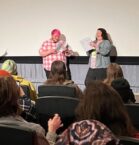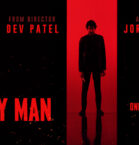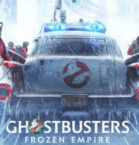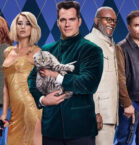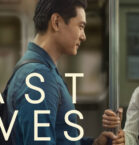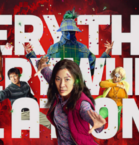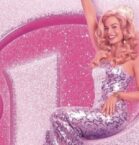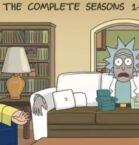Roland Emmerich talks Shakespeare, Anonymous and being influenced by Steven Spielberg
We recently had a chance to sit down with ANONYMOUS director Roland Emmerich and talked about the film’s controversy as well as a number of other topics. Mr. Emmerich was very passionate about his first non-blockbuster film, which hits Blu-ray on February 7th.

Flix66: Mr. Emmerich it’s an honor to speak with you. I can’t tell you how many of your movies I’ve camped out for hours to be first in line for tickets…before we could buy tickets on the Internet. And congratulations on Anonymous. I understand you’ll be dressing in a tux for the Oscars as your film has been nominated for best costume design.
Roland: Thank you
Flix66: In the past, you’ve frozen over New York, you’ve blown up the White House, and you’ve followed John Cusack’s trek to escape the end of the world. With this blockbuster, effects-driven resume, what was the appeal of a largely dramatic British period piece involving the supposed theory of the true authorship of the plays of Shakespeare by Edward de Vere, the 17th Earl of Oxford?
Roland: When you’re a director you always hope for scripts or subject matter coming your way, and whereas the other movies I wrote myself, this script was coming to me from somebody else and it immediately grabbed my attention and got my brain going. I immediately checked out the theory overall, and I said this story had to be told. And I think it needed somebody to tell it who wasn’t afraid of anything. And I’m normally not afraid of anything.

Flix66: And as you got involved in the theory and the controversy, did you develop a theory or belief of your own?
Roland: At the very beginning I was not really, but now I am totally convinced that William Shakespeare of Stratford did not write these works. Now, is the theory in my film the true one, I could not say 100%…it’s an invention. Just like the man from Stratford was an invention. Nobody can tell or will ever be able to tell. But as someone speaks this theory out loud, it’s kind of like throwing stones into a church. It gets a lot of people very, very angry.
Flix66: Speaking of which, do you think the protests before the film’s release by the Shakespeare Birthplace Trust and especially Columbia University’s James Shapiro hurt or helped the film?
Roland: It hurt. Because it made smart people not want to see the film. These guys are famous people. The Shakespeare Birthplace Trust is very powerful in England and Jim Shapiro is kind of your typical New York intellectual, and they were very smart how they handled this film in discrediting the film. And when you look at the reviews you’ll notice most were reviewing the theory and not the film.

Flix66: And that’s a shame when Rhys Ifans and Vanessa Redgrave really knocked it out of the park with their performances. Now, this was the first of your filmography with a predominantly British cast. How was your interaction with Rhys Ifans and especially a classic actress like Vanessa Redgrave?
Roland: I insisted from the very beginning because I wanted to be true to the subject matter, I asked Sony if I could have an all English cast, and I guess maybe because it’s me and I’ve made a lot of money for them, they said yes to that. And then I went to England and met all these fantastic actors, and for me it was the best shoot I ever had because of that. Because I was such in awe of all these people and every day it was fun to go to the set because you were always surprised by them and they were all so good. And I’m a little bit miffed and pissed that other people never saw that. Especially the Academy, who always has the same usual suspects that get nominated.
Flix66: And do you think the people disputing the film’s theories, the vocal detractors like Birthplace Trust and the New York intellectual establishment, undercut those performances even in the eyes of the Academy?
Roland: Yes, because I think all the forces have to truly align to get you a nomination. And in that case, one of the most important forces, the film critics, never saw that or didn’t acknowledge it. Some did, but most of them didn’t, and that’s pretty much what does it.
Flix66: In the final product, the film jumps around a bit chronologically. Was that how it was written in John Orloff’s script, or was it ever discussed to tell the story on a more linear path?
Roland: At the beginning, the script I got was totally linear. There was actually only one big flashback and that was it. It was all my doing as I (laughing) tried to make this movie as complex and as complicated as possible. I think I made this movie more for myself and for my friends, and I’m still incredibly proud of it. That will not change. And I love it when people who kind of know this business very well they say this movie will survive. It will survive the same way The Patriot survived. Because the Patriot was also not that successful with the critics or the box office, and here it is this movie which is on TV and DVD and has a whole new life…and it’s actually the most sold DVD of Sony.

Flix66: Yeah, I think that was post-first Mel Gibson meltdown, and yet I see it on TNT all the time now.
Roland: And yeah, I see it on all of my statements, because of my success, and always these checks are coming in, so I guess somebody has to like this film. That’s kind of the clear sentence as to what works with audiences and what doesn’t, because it creates revenue. I hope Anonymous is like that and gets a second wind and kids finally see it and its running on TV and you’re either immediately grabbed or you change the channel. And I have a feeling people will check it out.
Flix66: In the film there is an overlying theme of art influencing politics and I was wondering if that was analogous to present day, and if so, what kind of political statement do you think “Anonymous” would be trying to portray?
Roland: I would say all art is political. Even when you make an escapist movie, your trying to do something to keep people awake for the truth. And when you make a movie like Anonymous which tries to wake up people and say don’t believe what other people want you to believe, then you either win or not win but I think time will tell if all that worked.
Flix66: I was thinking more along the lines of how you thought it was related to current political structure, if that was even a consideration.
Roland: It’s the same thing with a political situation. Because of the internet everything has changed. Because of the internet everyone can say what they want and I think the powers that be can not hold them off that easily anymore. Now in totalitarian states like in the Arab world there are kind of these offshoots of those dissident voices. And it starts a true democratic process. Here in the Western world it’s a little more difficult because we have more experience so the press and the politicians have much more experience in how to kind of lead the people in a certain direction they want. But even then it’s not truly possible to keep the truth away from people.
Flix66: One last question, directors are often influenced by films they watch that truly steer them into the field. What movie would you consider your favorite, the film that truly jazzed you up about filmmaking?
Roland: For me, it was when I was in film school. I was visiting a friend in Paris. I think it was 1978, and I saw a movie called Close Encounters of the Third Kind, and I thought it was so original, I fell in love. I was there for a week and I saw it three, four, five times, and that was for me the seminal movie that made me want to make the movies I do.
By Jeremey Gingrich
[fbcomments]

 Jeremey Gingrich
Jeremey Gingrich

